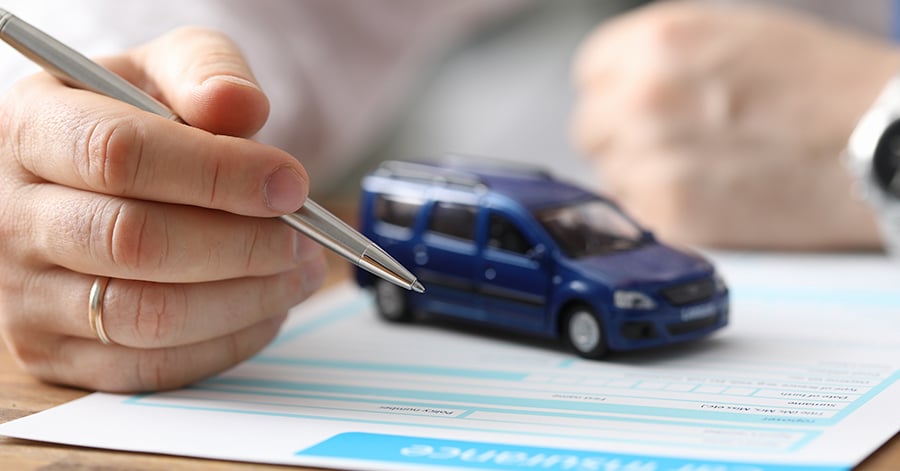Should you Carry More Than the Minimum State Car Insurance Requirements?

Most states today have mandated auto insurance requirements. In other words, you’re required to carry a certain amount of liability insurance. This covers the other drivers on the road that you put at risk by driving yourself. If you cause an accident and cause harm to someone else, your liability insurance should cover the damages. It’s your way of saying that you are financially responsible enough to be on the road.
[sc_content_link label=”Get today’s auto insurance rates.” cat=”auto”]
But should you carry more than the amount your state requires?
What Liability Insurance Doesn’t Cover
First, let’s be clear. Liability insurance only covers the other people you may harm in an accident. It does not cover your car, you, or your passengers. If you caused an accident and only carried liability insurance, your insurance company would cover the damages to the other people involved in the accident, which is good since car repairs and medical bills can be very expensive. However, you still have to cover the expenses of yourself, your passengers, and your car, which could be expensive and/or devastating.
The State Minimum Liability Insurance
Most states have minimum insurance requirements, but they often aren’t enough. Even though each state differs, in general, they require:
- Bodily injury liability – This covers the damages caused to the people in the car you hit. Each policy has a per person and per accident limit. For example, if your insurance has a $30,000 per person and $60,000 total per accident, it means they’ll cover $30,000 for each person and up to $60,000 for all people in the car.
- Property damage liability – This covers the damages you cause to either another car or property. The required minimums for this insurance is usually pretty low and not enough to cover the cost of a major accident.
Some states also require uninsured or underinsured coverage. This protects you in the event that someone hits you that doesn’t have insurance or doesn’t carry enough insurance to cover the cost of the damages to you, your passengers, and your car.
[sc_content_link label=”Shop and compare car insurance quotes.” cat=”auto”]
Some states also require Personal Injury Protection or PIP. This is medical coverage for you and your passengers. This is most commonly required in ‘no-fault’ states where a fault isn’t placed on one party – each party’s insurance covers their own damages. PIP may also provide coverage for lost wages or pain and suffering.
Do you Need Collision or Comprehensive Insurance?
This is where most people get confused. They follow their state’s minimums but notice that they don’t say anything about comprehensive or collision insurance. Many people forgo it because it’s not required. If you do, you put yourself at great risk of financial distress, unless you have the money to replace your car and cover your medical bills if you are involved in an accident that is your fault.
Collision insurance is the only coverage that covers your car in the event of an accident that you cause. It often doesn’t raise your premium by much, but provides exponential protection. Collision insurance covers your car in the event of a collision with another car, an animal, or even a one-car accident.
Comprehensive insurance covers you in the event of any other disaster that doesn’t involve an accident. It covers things like theft, vandalism, storm damage, cracked windshields, and more. Like collision coverage, comprehensive doesn’t increase your premium by much, but it provides you with peace of mind knowing that your car is covered.
The only time these insurance coverage options may not make sense is if you drive a very old car. If you have enough money saved up to replace the car in the event that it’s totaled, you can save the money on the premiums and just carry the state minimum liability insurance (or more if you want more protection).
Make Your Decision Carefully
Really think about the cost of the worst accident that you could cause. Would your insurance cover the damages, especially those made to other people and cars or would it leave you with a financial responsibility too?
Don’t focus only on the state minimum requirements. Focus on what you can afford should the worst happen. Compare your options. You may be surprised to learn that increasing your coverage only changes your premiums by a few dollars, yet it could save you thousands of dollars in the event that you needed to use it.
[sc_content_link label=”Get the right insurance coverage.” cat=”auto”]
